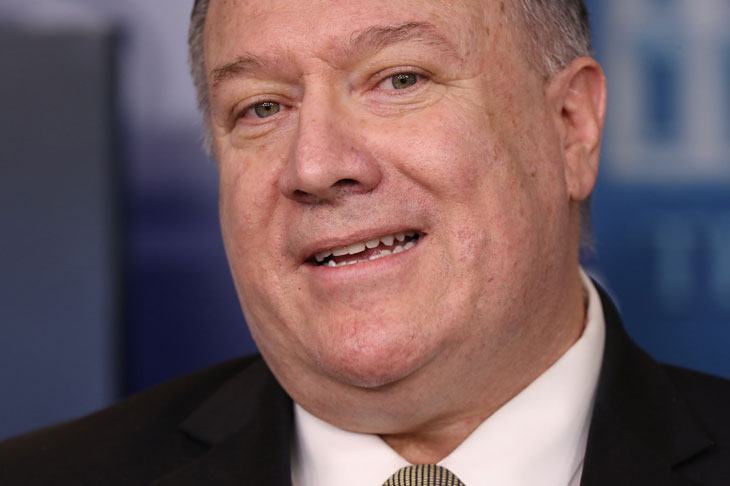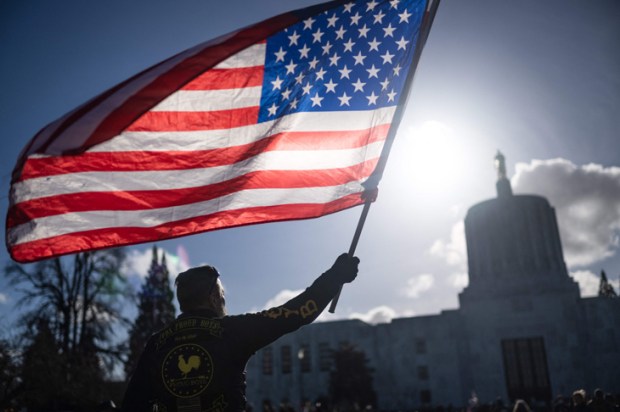Life’s cut-through lessons arrive unpredictably. I once volunteered at a community body with an elderly couple, me in my thirties, they in their seventies; she was tiny and commanding, he was exactly like Colonel Mustard in the Cluedo boardgame – handlebar moustache, well-groomed, military bearing – albeit slightly dull. He adored her and was the satellite to her sun. Then she died and we all felt bleak at his prospects.
A couple of years later I ran into him in the street. He was almost unrecognisable. He had a spring in his step, a sparkle in his eye and a perky bearing. He was debonair in a reefer jacket and hinted at a new girlfriend. He didn’t stop to chat long, but bounded away on his new life with zest.
Clearly his wife had at some level squashed a part of him and he had now rediscovered himself and his joy in life. The Colonel’s hidden strengths could not have been known to outsiders – life is full of truths and facts that are not obvious. The influential writer and mathematician Nassim Nicholas Taleb calls these ‘non-observables’ and they seem to have been his life’s work: ‘My core idea is about the effect of non-observables in real life. My focus is on the errors that result.’
One of the benefits of getting older is watching events play out around you in semi-predictable ways; equally one learns not to pre-judge too comprehensively, to leave space for the Colonel Mustard surprises, when life shows you there are ‘more things in heaven and earth than dreamt of,’ as Shakespeare put it.
‘Non-observables’ are all around us, and continuously affect events in ways we cannot know. Something changes in an existing situation, that which was non-observable rises to the surface and exposes a new reality, readjustments are made and a new balance is struck.
This is occurring now in the case of China, with the Western world waking up to the morality-free nature of the CCP and its quest for ever-greater global power. Previous tolerance is giving way to a more clear-eyed assessment, even as the CCP grows bolder in its global conduct, apparently feeling invulnerable to repercussions. Witness the crackdown in Hong Kong and the less-reported border incursions near Ladakh, India. The virus may have been the circuit-breaker event to change Western attitudes, but there’s quite a raft of transgressions to build on, including military aggression in the South China Sea, Uighur rights abuses, trade cheating, intellectual theft, and lately, economic bullying. Nor is it clear that China realises how much respect and prestige it has lost and how profound an effect that change in attitude will have. Some say that China has been in an information and economic cold war with the West for decades, but the West has not been fighting. It has been trying to help China develop, giving it preferential treatment in some cases and turning a blind eye to blemishes, assuming that China would become a good global citizen over time.
Post-virus, a new mood looms; here are three examples of how ‘non-observables’ will work out to China’s detriment. In 2013, the US permitted Chinese firms to list on US stock and bond exchanges without complying with the Sarbanes-Oxley Act covering accounting and risk disclosure required of all US listed firms. This Obama-Biden double standard has led, unsurprisingly, to fraud and billions in US investor rip-offs. One such company, China’s domestic Starbucks challenger, Luckins Coffee, now faces delisting, after losing 90 per cent of its US share price since January this year as profoundly fake sales data emerged. Legislators are responding: the US Senate last week unanimously passed a GOP bill tightening up on this extraordinary auditing loophole; a Democrat is due to take it through the House. Chinese companies such as Alibaba have raised billions on US exchanges; they now face the prospect of delisting unless they submit to US auditors.
Secondly, the Trump administration has just stomped on a plan, years in the making, to move US$4.5bn from the federal pension fund, the Thrift Savings Plan, into an international index comprising numerous Chinese companies, including US-blacklisted ‘bad actors’. This is another symbolically significant signal to the powerful US capital markets; the money tap is being turned off.
Thirdly, China controls its population with the help of an internet firewall, the Berlin Wall of our day. It has been a bipartisan US policy to breach this firewall for many years, but an inert bureaucracy has been ineffective, despite a US$700m budget. The Trump administration is now acting: it has rebranded the agency governing Voice of America and Radio Free Asia into the US Agency for Global Media and appointed a new boss. Longtime internet freedom activist and former Reagan-era top bureaucrat Michael Horowitz says some Democrats’ political attitudes to China have now changed and predicts that Mike Pompeo, US Secretary of State and a China hawk, could bust China’s Great Firewall within a year, using already-allocated funds. ‘I can’t imagine anything more cost-effective or strategic for the US to do,’ says Horowitz. Pompeo has already labelled transparency about events in China a national security priority; without a firewall the West would have learned about the coronavirus threat much earlier. Watch this space.
Ex-Labor senator Graham Richardson this week was gloomy about China. ‘Just how you censure China or make it face some kind of reckoning no one has ever been able to explain to me,’ he wrote. But when the tectonic plates of public opinion shift, ‘non-observables’ shed their secrecy and new possibilities emerge; the Colonel Mustard effect, writ large. China dominates the global supply chain but consumers do have choices and we can boycott Chinese goods, even as our governments work to reshore various strategic capacities. US capital markets can cold-shoulder China and if the internet firewall is breached, thought in China may finally feel the pull of long-denied ideals of freedom.
I have just read with growing horror the wildly successful 2015 Hugo Award-winning Chinese sci-fi novel, The Three-Body Problem (spoiler alert).
An astrophysicist brutalised by CCP rule abandons all hope for the human race and invites an unknown alien civilisation in to conquer the planet. In a postscript the author writes: ‘Every era puts invisible shackles on those who have lived through it, and I can only dance in my chains.’ It can be no coincidence that such despairing fiction came out of the most ruthless and powerful totalitarian nation on the planet.
Got something to add? Join the discussion and comment below.
Get 10 issues for just $10
Subscribe to The Spectator Australia today for the next 10 magazine issues, plus full online access, for just $10.
You might disagree with half of it, but you’ll enjoy reading all of it. Try your first month for free, then just $2 a week for the remainder of your first year.














Comments
Don't miss out
Join the conversation with other Spectator Australia readers. Subscribe to leave a comment.
SUBSCRIBEAlready a subscriber? Log in